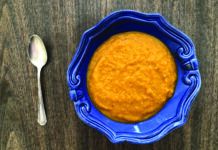Answer : Irradiation is one of the possible methods to satisfy a 2007 USDA requirement that raw almonds be pasteurized to prevent foodborne illness, such as the salmonella outbreaks in 2001 and 2004 traced to raw almonds. According to the Almond Board of California, however, Radiation as a pasteurization method has been considered, but not actively pursued. And a spokesperson for the almond trade group confirms that no California almonds are being irradiated.
You may encounter other foods, however, that have been irradiated to kill foodborne bacteria. Last year, for example, in the wake of illnesses traced to contaminated leafy vegetables, the US Food and Drug Administration (FDA) approved a rule modification to permit the (optional) irradiation of fresh iceberg lettuce and fresh spinach at the maximum absorbed dose. The FDA has determined that the process is safe and effective in decreasing or eliminating harmful bacteria on a variety of foods. Irradiation of foods is allowed in nearly 40 countries and has been endorsed by the World Health Organization and the American Medical Association. Foods that have been irradiated do not lose any of their nutritional value.
Nonetheless, irradiated foods remain controversial and some consumer groups have expressed concerns about their safety. If you prefer to avoid irradiated foods, simply check the package label: All foods that have been irradiated must carry the international symbol for irradiation, the radura (shown here), as well as the phrase, treated by irradiation (or with irradiation). You can also opt for organic foods, since irradiation is not acceptable under the rules of the USDA National Organic Program; thus, foods labeled organic cannot be irradiated.



















